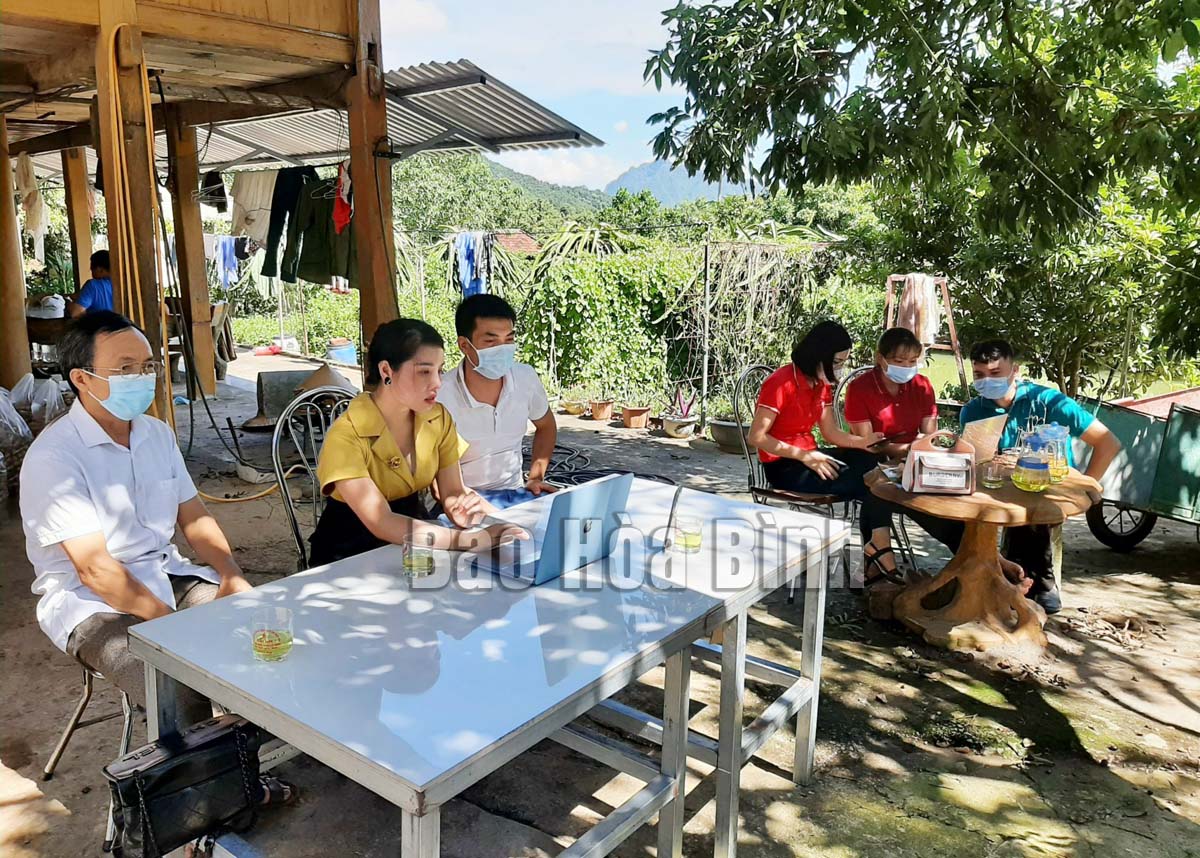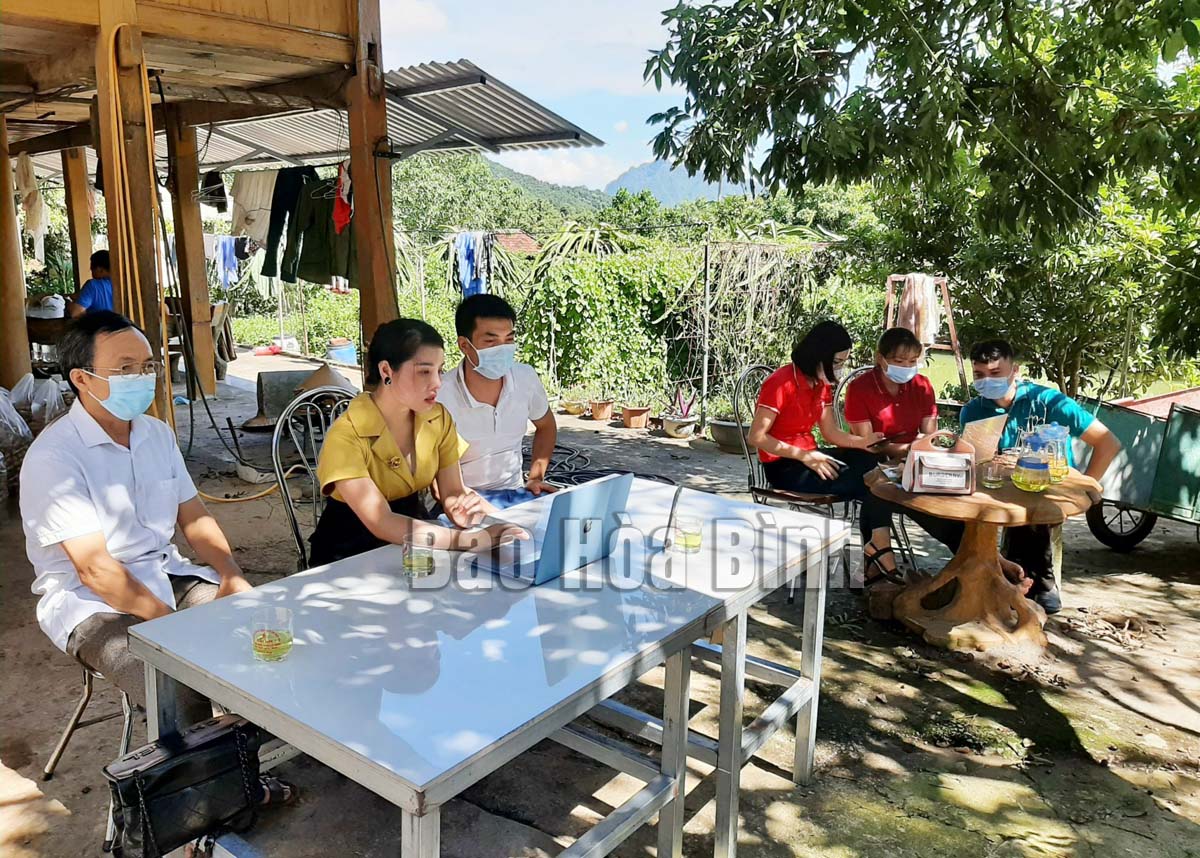
(HBO) - The provincial alliance of cooperatives, in coordination with the Hoa Binh branch of Viettel Post on August 18 held a virtual meeting to share information on longan supply and demand, and introduce longan cultivated by Son Thuy cooperative in Xuan Thuy commune (Kim Boi district).
The event saw the attendance of firms which are seeking partners in longan cultivation and consumption, along with the Son Thuy agricultural and service cooperative and other cooperatives also growing the fruit tree in the province.
Delegates of Son Thuy cooperative in Xuan Thuy commune (Kim Boi district) join the virtual meeting.
At the meeting, the Son Thuy cooperative introduced the scale and yield of its longan farms, as well as fruit packaging and transport methods. The cooperative has 41 members who grow longan on 34ha.
The fruit is grown under VietGap standards and rated as a three-star item of the province’s "One Commune, One Product" (OCOP) programme.
The cooperative’s longan output is estimated to hit eight tonnes per hectare this year.
Based on the information, participants discussed conditions to form partnerships in longan production and consumption. From August 18, businesses and consumers can buy Son Thuy longan on the voso.vn shopping platform run by Viettel Post.
Viettel Post representatives also provided participating cooperatives with skills to sell their products online on the voso.vn e-commerce marketplace. Of note, packaging must meet requirements when selling on the platform.
In the coming time, the province’s alliance of cooperatives will continue to join hands with Viettel Post Hoa Binh in helping its members sell their products online, particularly Phuc San taro, Phu Cuong sweet potato, orange varieties in Cao Phong, Kim Boi and Lac Thuy, and Tan Lac red-flesh pomelo, among others.
According to data from the Hoa Binh Provincial Party Committee, the industrial production index for the first six months of 2025 is estimated to have increased by 20% compared to the same period last year. This marks the highest year-on-year growth rate for this period since 2020.
In the first six months of 2025, Hoa Binh province’s export turnover was estimated at 1.145 billion USD, marking an 18.11% increase compared to the same period in 2024. Import turnover was estimated at $ 804 million, a 17.15% increase, which helped the province maintain a positive trade balance.
The lives of the ethnic minority farmers in Tan Lac district have gradually improved thanks to the new directions in agricultural production. This is a testament to the collective strength fostered through the professional associations and groups implemented by various levels of the district’s Farmers’ Union.
With the motto the "product quality comes first,” after nearly one year of establishment and operation, Muong village’s Clean Food Agricultural and Commercial Cooperative, located in Cau Hamlet, Hung Son Commune (Kim Boi district), has launched reputable, high-quality agricultural products to the market that are well-received by consumers. The products such as Muong village’s pork sausage, salt-cured chicken, and salt-cured pork hocks have gradually carved out a place in the market and they are on the path to obtaining the OCOP certification.
In the past, the phrase "bumper harvest, rock-bottom prices" was a familiar refrain for Vietnamese farmers engaged in fragmented, small-scale agriculture. But today, a new spirit is emerging across rural areas of Hoa Binh province - one of collaboration, organisation, and collective economic models that provide a stable foundation for production.
Maintaining growing area codes and packing facility codes in accordance with regulations is a mandatory requirement for agricultural products to be eligible for export. Recently, the Department of Agriculture and Environment of Hoa Binh province has intensified technical supervision of designated farming areas and packing facilities to safeguard the "green passport" that enables its products to access international markets.



